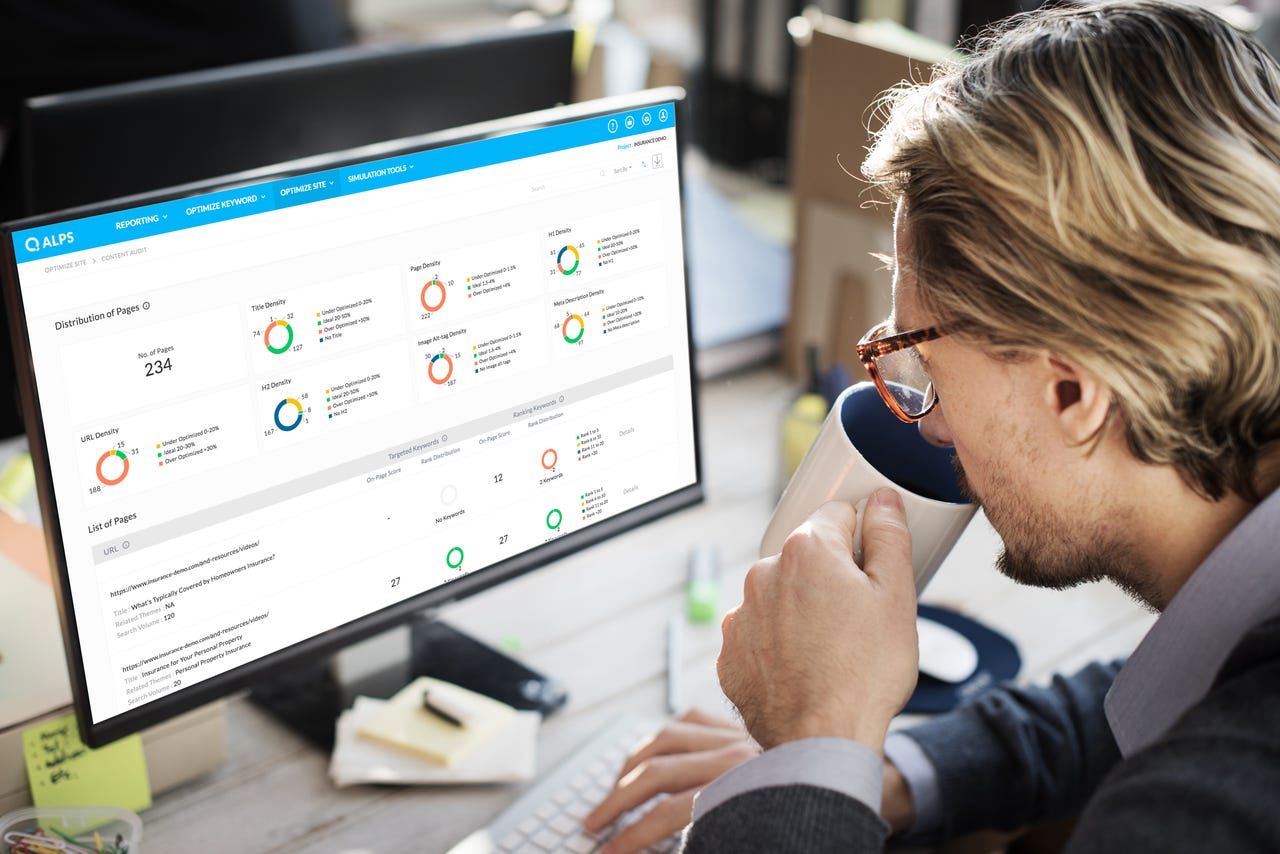Adding computer science to the art of marketing


iQuanti ALPS: "We believe... that the quantitative side of search is an art, and what we can do is bring a lot more science into it."
iQuanti claims it can help companies make better decisions about online marketing and search engine optimisation through the use of data: its Alps tool allows marketers to forecast the impact of search engine optimisation (SEO) strategy on areas like site traffic to revenue impact.
ZDNet spoke to iQuanti CEO Sastry Rachakonda about why its new tool is so effective.
ZDNet: Tell me about your company and the markets you are trying to address.
Rachakonda: We are a digital marketing company but we work across channels and primarily in the B2B space. That's our core strength but we work across various campaign management areas.
A lot of the search we focus on relates to work and analytics but we also set up and manage a lot of sites for people. Fundamentally, we are about using Google search data to drive more effective marketing.
Is your main activity targeted online marketing?
Yes, it is about using information and data to drive better marketing strategies. A lot of what we do is driving marketing campaigns and creating online products for driving better campaigns.
We all know marketing can and is used to drive information, but what is the key to driving useful, qualitative data?
iQuanti's Rachakonda: "In many ways this tool comes completely out of my own experience."
Good marketing is the marriage of quantitative and qualitative information. We believe that too much marketing tends to be more qualitative than necessary and that there is a lot more quantitative data available that can help you drive marketing more effectively.
A great example of that is search engine optimisation (SEO). Everybody wants to rank highly on Google but nobody quite knows how the Google algorithm works.
There is a lot of qualitative influence to search engine optimisation in terms of, 'Let's make this change and see what happens', or, 'Let's add these two sentences in the copy and maybe that could drive better rankings'. So it's very qualitative.
What the tool that we have built actually does is to bring data into that qualitative feed by saying that Google's ranking is scoring your site based on the keyword, based on the search i9xsterm. Now we can score it and find out how Google scores it and really drive better rankings.
We feel there can be a lot more quantitative aspects to marketing -- a lot more science in marketing, which is still very much an art.
How are you making the information more useful?
By making it a lot more predictive. Let's look at ALPS, our search engine optimisation tool. Traditionally on my site I would try and rank for a keyword, so let us say that I was building a site around Brexit.
There are a lot of people talking about a lot of things about Brexit, so how would I make it rank? I would have various ideas and would try and do things here and there, but my approach would be very qualitative. I would think that if I used Brexit in my first paragraph, Google would recognise it and rank it very highly and likewise if I used it in my heading.
I would know there are certain rules of the road. It is very qualitative but I have some sense of it. What the tool does is it says, you can do this but this is how you score and this is how the other sites who rank highly on Brexit get scored. What the tool then does is allow you to make changes. You can make changes and go ahead, but what our tool then does is run as a simulation.
What is your background?
I worked my way through business school, then I worked in marketing at American Express, and later was the head of small business at Discover before founding iQuanti.
How does that relate to iQuanti's tool?
The tool itself is very reflective of my experience on the other side of the table. I would be asking my team, 'what are the changes that I can make to enable our site to rank higher?'. I would find that the agencies that we worked with would have answers which were not really useful.
They would say, 'tell me to make these five changes', and would ask, i'f I make these five changes will I rank better?', and the answer was always, 'I don't know because we don't know how the algorithm works'. There was a lot of may or may not.
In many ways this tool comes completely out of my own experience.
When I was trying to get a better rank for my credit card, we were ticking the same boxes as everyone else. Now if I could get my credit card to rank more highly on organic search, I could have got a lot more traffic.
There was no predictable way of doing this and this tool gives you that.